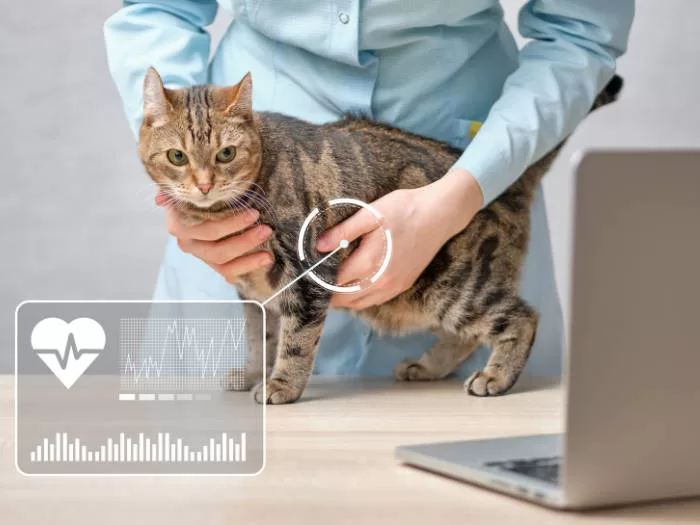The heart rate of cats is an intriguing mystery surrounding the energy of rest and its impact on feline health. Observing the cats’ signs of health , such as bright eyes, clean ears, a muzzle free of injuries, healthy skin and coat, normal appetite, adequate weight, is essential, as well as checking the feline’s heart rate, breathing and disposition. In addition, regular visits to the veterinarian for physical examinations and diagnosis of possible heart disease are important to ensure the cat’s health.
Main points to consider:
- Observe the cats’ signs of health , such as bright eyes, clean ears, a bruise-free snout, healthy skin and coat, normal appetite and adequate weight.
- Check the cat’s heart rate, breathing and mood.
- Make regular visits to the veterinarian for physical examinations and diagnosis of possible heart disease.
- Pay attention to symptoms such as lethargy, abnormally high respiratory rate, mouth breathing, shortness of breath, lack of appetite, fainting, accumulation of fluid in the belly and paralysis in the hind legs.
- The veterinarian may perform additional tests to confirm the diagnosis.
Heart Rate and Cat Health
Observing signs of your cat’s health is crucial to ensuring their overall well-being, including monitoring their heart rate. Cats’ heartbeats have a beat that energizes rest, and any change in this rhythm can be an indication of health problems, including heart disease.
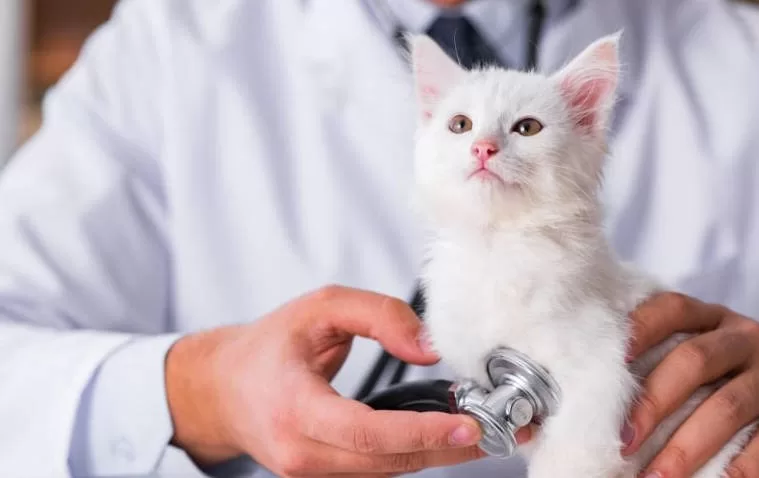
There are several health signs that we should observe in our felines to ensure they are healthy. In addition to bright eyes, clean ears, a bruise-free snout, healthy skin and coat, normal appetite and adequate weight, it is important to check the cat’s heart rate, breathing and disposition. Changes in these signs may indicate the presence of heart disease and, therefore, it is essential to take him to the veterinarian for physical examinations and proper diagnosis.
Symptoms such as lethargy, abnormally high respiratory rate, mouth breathing, shortness of breath, lack of appetite, fainting, fluid accumulation in the belly and paralysis in the hind legs should be taken seriously and require immediate veterinary attention. The veterinarian may perform additional tests to confirm the diagnosis and initiate appropriate treatment.
| Signs of Cat Health | Heart Disease in Cats |
|---|---|
| – Bright Eyes | – Irregular heartbeat |
| – Clean ears | – Difficulty breathing |
| – Muzzle free from bruises | – Accumulation of fluid in the belly |
| – Healthy skin and coat | – Lethargy |
| – Normal appetite | – Fainting |
| – Adequate weight | – Paralysis in the hind legs |
By closely observing signs of a cat’s health, especially their heart rate, we can identify problems early and ensure they receive appropriate treatment. Remember to take your feline to the vet regularly and be aware of any changes in its behavior or physical condition.
Symptoms of Heart Problems in Cats
Identifying the symptoms of heart problems in cats is essential to ensure early diagnosis and adequate treatment. Signs of heart disease can vary depending on the severity of the problem and can be similar to other health problems, so it’s important to be aware of any changes in your feline’s behavior.
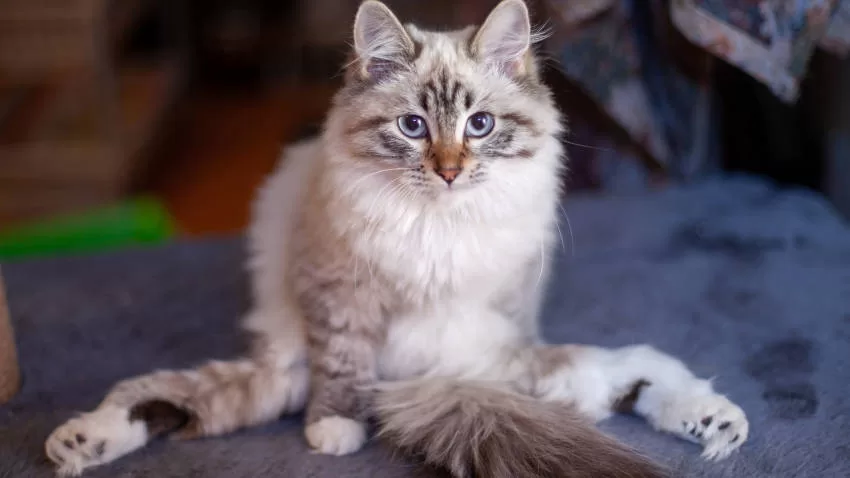
Some of the most common symptoms of heart disease in cats include lethargy, an abnormally high respiratory rate, mouth breathing, shortness of breath, lack of appetite, fainting, fluid buildup in the belly, and paralysis in the hind legs. If you notice any of these signs in your cat, it is essential to seek immediate veterinary care.
Diagnosing heart disease in cats involves physical examinations and, if necessary, additional tests such as x-rays, echocardiograms and blood tests. Only a veterinarian can make the proper diagnosis and recommend the most appropriate treatment for your feline.
| Symptoms of Heart Problems in Cats | Indicate | Comments |
|---|---|---|
| Lethargy | Possible heart failure | Cat shows lack of energy and willingness to do activities |
| Abnormally high breathing rate | Breathing difficulties | Cat may present panting or accelerated breathing |
| Mouth breathing | Cardiac insufficiency | Cat breathes through its mouth instead of its nose |
| Shortness of breathe | Cardiac insufficiency | Cat has difficulty breathing or frequent choking |
| Lack of appetite | Loss of appetite due to heart problems | Cat stops eating or eats less |
| Fainting | Serious heart problems | Cat may faint or appear disoriented |
| Accumulation of fluid in the belly | Congestive heart failure | The cat’s belly is swollen due to the accumulation of fluid |
| Paralysis in the hind legs | Blood clots | Cat may have difficulty moving its hind legs |
Remember that these symptoms may indicate the presence of heart problems, but only a veterinarian can make the correct diagnosis. Therefore, if you suspect any health problem in your cat, it is always advisable to seek professional advice to ensure your feline’s well-being.
The Importance of Veterinary Exams
Regular veterinary checkups are essential for monitoring your cat’s heart health and diagnosing potential problems early. In addition to observing signs of feline health, such as bright eyes, clean ears, a muzzle free of injuries, healthy skin and coat, normal appetite and adequate weight, it is essential to check the cat’s heart rate, breathing and disposition.
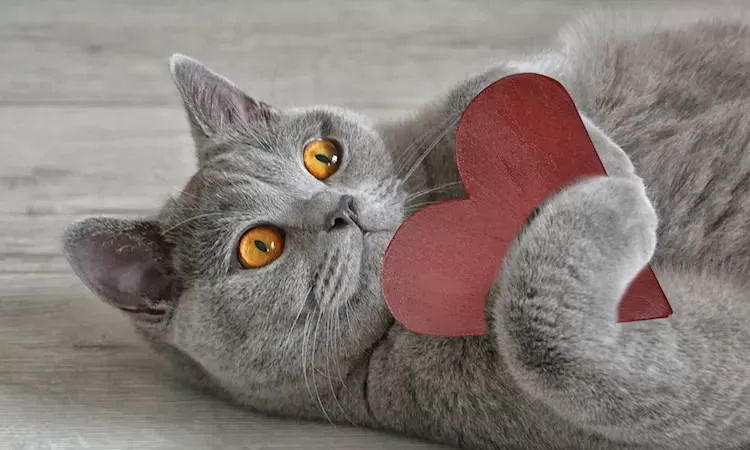
When it comes to heart problems in cats, it is important to be aware of symptoms such as lethargy, abnormally high respiratory rate, mouth breathing, shortness of breath, lack of appetite, fainting, accumulation of fluid in the belly and paralysis in the hind legs. If the owner observes any of these signs, it is recommended to take the cat to the veterinarian immediately.
The veterinarian will perform detailed physical examinations, including listening to the heart to check the heart rhythm and the presence of murmurs or irregular beats. If heart disease is suspected, the professional may request additional tests, such as chest x-rays, electrocardiogram (ECG) and echocardiogram, to confirm the diagnosis and determine appropriate treatment.
Veterinary Exams Indicated for Cardiac Assessment of Cats
| Exam | Description |
|---|---|
| Physical exam | Includes heart auscultation and checking vital signs. |
| Chest x-ray | It evaluates the shape and size of the heart and identifies the presence of fluid in the lungs. |
| Electrocardiogram (ECG) | It records the electrical activity of the heart and can detect arrhythmias. |
| Echocardiogram | It uses ultrasound to visualize the structure and function of the heart. |
It is important to note that only a veterinarian can diagnose and recommend appropriate treatment for heart disease in cats . Therefore, when observing any warning sign, the owner should schedule a veterinary appointment as soon as possible to ensure the feline’s health and well-being.
Special Care for Cardiac Cats
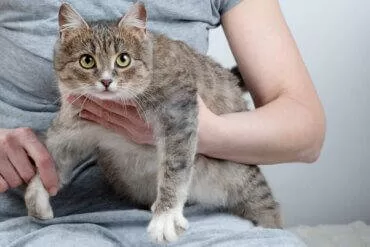
Cardiac cats require special care to ensure their quality of life and well-being. In addition to observing signs of health, such as bright eyes, clean ears and a bruise-free nose, it is essential to monitor the cat’s heart rate, breathing and disposition. A regular visit to the veterinarian is essential for physical examinations and diagnosis of possible heart disease. To ensure proper care, it is important to be aware of symptoms such as lethargy, abnormally high respiratory rate, mouth breathing, shortness of breath, lack of appetite, fainting, fluid accumulation in the belly and paralysis in the hind legs.
When a cat is diagnosed with heart disease, your veterinarian may prescribe specific medications to help manage the condition. It is essential to strictly follow the professional’s instructions and administer medications as prescribed. Furthermore, it is recommended to maintain a healthy lifestyle for your feline, providing a balanced diet and promoting adequate physical exercise.
An important aspect of caring for cardiac cats is regular monitoring of the animal’s heart rate. To this end, there are technological innovations on the market today such as portable heart monitors, which allow you to monitor your heartbeat at home. These devices allow for more accurate observation of your cat’s heart rhythm over time and can help detect any changes early.
Special Care for Cardiac Cats
Here are some additional tips for caring for cardiac cats:
- Keep the environment calm and stress-free for the cat.
- Avoid intense physical activities that can overload your feline’s cardiovascular system.
- Maintain a consistent feeding routine and offer a balanced diet recommended by your veterinarian.
- Avoid exposure to extreme temperatures as this can affect heart function.
- Strictly follow your veterinarian’s instructions and schedule follow-up appointments regularly.
When caring for a cardiac cat, it is essential to work in partnership with a trusted veterinarian to ensure that all of the feline’s needs are met. Frequent monitoring, correct medication administration, and proper lifestyle can help ensure your cardiac cat lives a happy, healthy life.
| Care Tips for Cardiac Cats | Important informations |
|---|---|
| Keep the environment calm and stress-free | Avoid situations that may cause your cat anxiety or stress. |
| Avoid intense physical activities | Moderate exercise is best for your feline’s cardiovascular health. |
| Maintain a balanced diet | Consult your veterinarian for a suitable diet for your cardiac cat. |
| Avoid exposure to extreme temperatures | High temperatures can overload the feline’s cardiovascular system. |
| Follow your veterinarian’s instructions | Administer medications as prescribed and schedule regular appointments. |
The Impact of Heart Rate on Cat Behavior
Cats’ heart rate plays an important role in regulating their behavior and energy levels. Just like humans, felines have a specific heart rate that varies depending on different factors, such as age, health status and physical activity.
When a cat’s heart rate is fast, they are likely to be more agitated and active. On the other hand, a slower heart rate generally indicates a state of relaxation and calm. These fluctuations in heart rate have a direct impact on the behavior of cats .
Observing a cat’s heart rate can give us clues about its emotional state and energy levels. If you notice a faster heart rate in your feline, it could be a sign that he is excited or stressed. On the other hand, if the heart rate is slower, your cat is probably relaxed and more likely to take a nice nap in his favorite corner.
It is especially important to observe the heart rate of cats when they exhibit abnormal behaviors, such as excessive agitation, apathy or lack of interest in daily activities. These changes in heart rhythm may indicate underlying health problems that require immediate veterinary attention.
The influence of heart rate on cat behavior
| Behavior | Heart rate |
|---|---|
| Playful and active | Accelerated |
| Relaxed and calm | Slow |
| Restless and stressed | Accelerated |
“Just like humans, cats have a unique heart rhythm that directly affects their behavior and disposition. It is important to watch for changes in a cat’s heart rhythm and seek veterinary advice if there are concerns.” – Veterinarian
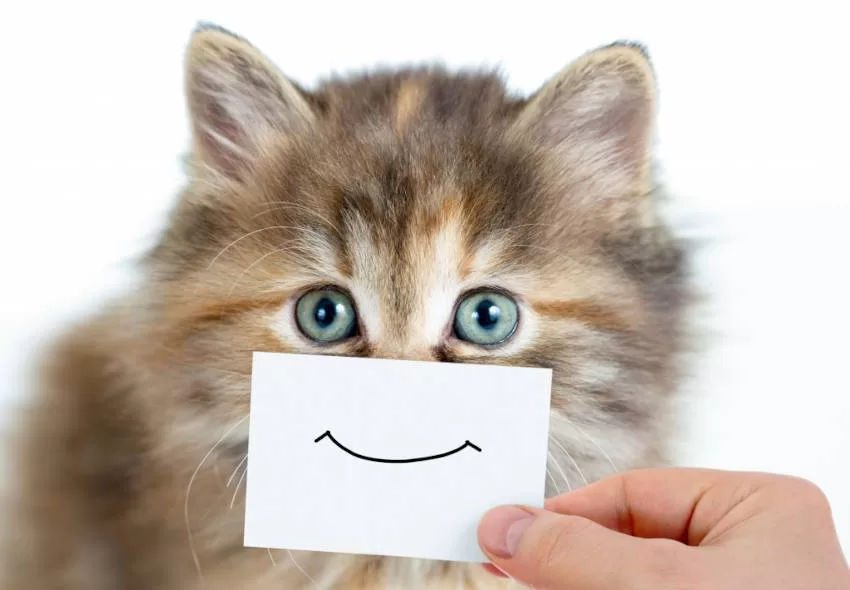
In short, a cat’s heart rate plays a crucial role in their behavior and energy. Observing a cat’s heart rate can provide valuable information about its physical and emotional state. If you notice any changes in your feline’s heart rhythm, it is essential to seek veterinary care to ensure their health and well-being.
The Cat’s Sleep Cycle and Heart Rhythm
Cats’ heart rate plays a key role in their sleep cycle, influencing the quality and recovery during rest. During sleep, felines go through different phases, alternating between deep sleep, REM sleep and periods of wakefulness. During this cycle, cats’ heart rate may vary, reflecting the activity of the nervous system and the body’s regeneration processes.
A recent study showed that, during deep sleep, cats’ heart rate tends to decrease, which promotes greater recovery and rest. At this stage, feline metabolism also slows down, allowing them to conserve energy.
During REM sleep, also known as dream sleep, a cat’s heart rate can increase and become more irregular. At this stage, rapid eye movements occur, and this is when cats can experience dreams. This period is important for memory consolidation and emotional processing.
By understanding the cat’s sleep cycle and how the heart rate relates to each phase, owners can promote a suitable environment for their felines to rest, ensuring that they have quality sleep and the recovery necessary for good health. .
| Sleep Phase | Heart Rate |
|---|---|
| Deep sleep | Diminished and regular |
| REM sleep | Enlarged and irregular |
“During deep sleep, cats’ heart rate tends to decrease, promoting greater recovery and rest.”
Cats’ heart rate and sleep quality
The quality of cats’ sleep is directly related to their heart rate. When your cat sleeps deeply and its heart rate slows down, this indicates that it is in a state of relaxation and rest. On the other hand, if your heart rate is fast or irregular during sleep, it could be a sign of stress, discomfort or even a health problem.
Observing the heart rate of cats during sleep can be useful to identify possible changes and seek advice from a veterinarian if necessary. Furthermore, providing a peaceful environment, with a comfortable and uninterrupted bed, helps cats enjoy quality sleep, ensuring their well-being and health.
- Provide a calm and peaceful environment for cats to sleep;
- Observe the felines’ heart rate during sleep, checking if it is regular and adequate;
- If you notice significant changes or symptoms of discomfort during sleep, consult a veterinarian;
- Provide a comfortable bed for cats, suitable for their size and preferences;
- Maintain a regular sleep routine for your felines, establishing fixed times for sleeping and waking up.
Creating an environment conducive to cats’ sleep and monitoring their heart rate during rest are important measures to ensure that cats enjoy a good quality of sleep and can recover properly, strengthening their health and well-being.
Heart Rate of Kittens
The heart rate of kittens is an important indicator of cardiac development and requires special attention during the first months of life. As kittens are constantly growing and developing, it is essential to monitor their heart rate to detect any abnormalities early.
During the first few weeks of life, kittens have a faster heart rate as their heart is adapting to the new environment and metabolic changes. As they grow, their heart rate tends to gradually slow down and stabilize in a healthy range.
It is recommended that kittens have regular veterinary checkups to check their heart rate and ensure they are developing properly. Additionally, your veterinarian may perform other tests, such as heart auscultation and imaging tests, to assess your puppy’s overall heart health.
| Signs of Abnormal Heart Rhythm in Kittens | Description |
|---|---|
| Accelerated heart rate | An excessively fast heart rate may indicate congenital heart problems. |
| Irregular heart rhythm | An abnormal heart rhythm, with beats skipping or occurring out of sync, can be a sign of arrhythmias. |
| Slow heart rate | A slower than normal heart rate may indicate abnormalities in the heart’s electrical conduction system. |
In case of any sign of an abnormal heart rhythm, it is important to seek immediate veterinary care. Early diagnosis and appropriate treatment can help ensure your kitten has the best chance at healthy heart development and a long, happy life.
Heart Rate of Elderly Cats
The heart rate of elderly cats may change, requiring special care to ensure their well-being. Just as in humans, aging can bring with it a decrease in the heart rate of felines. It is important to observe these changes closely and be aware of possible heart problems.
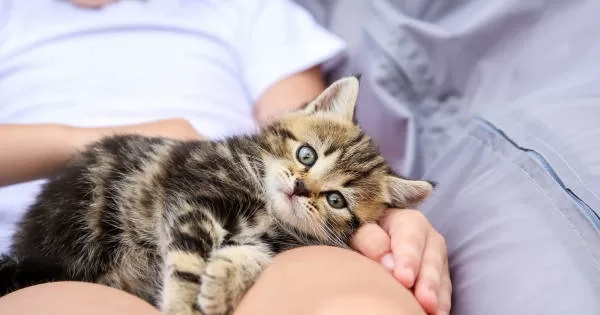
In addition to monitoring the heart rate, other specific care is necessary for elderly cats. It is essential to ensure that they maintain a healthy and balanced diet, appropriate to their nutritional needs. Food should be easily digestible and, if necessary, can be supplemented with vitamin supplements to promote heart health.
| Care for Senior Cats | Heart Rate of Elderly Cats |
|---|---|
| Monitor your health regularly and perform heart exams | Pay attention to possible changes in heart rate |
| Provide an adequate diet, with easily digestible foods and vitamin supplements, if necessary | Ensure that the diet is healthy and balanced |
| Encourage the practice of physical activities according to the cat’s capacity | Adapt physical exercise to the feline’s limitations |
Furthermore, it is essential to provide a safe environment for elderly cats, avoiding obstacles that could cause falls and injuries. It is also important to provide a comfortable bed so that the feline can rest properly.
If you have any concerns about heart rate or other symptoms, it is recommended that you consult a veterinarian. The professional will be able to assess the situation, perform additional tests and provide specific guidance for the care of the elderly cat.
Diet and Heart Rate of Cats
Proper nutrition plays a crucial role in maintaining a healthy heart rate in cats. Just like humans, felines need a balanced diet to ensure the proper functioning of their cardiovascular system. The influence of food on cats’ heart rate is directly related to the nutrients provided and the amount of food consumed.
A balanced diet for cats should consist of high-quality foods that meet each animal’s specific nutritional needs. It is important to offer foods that are rich in proteins, vitamins and minerals essential for heart health. Avoiding excessive consumption of foods rich in sodium and fat is also essential to prevent cardiovascular problems.
| Recommended foods for a healthy diet: | Foods to avoid or offer in moderation: |
|---|---|
| Lean meats (chicken, turkey) | Canned foods high in sodium |
| Fish (tuna, salmon) | Processed and industrialized foods |
| Balanced and age-specific diets | Fatty foods (such as bacon and fried foods) |
| Greens and vegetables suitable for cats | Sweets, chocolates and sugary foods |
It is essential to respect the specificities of each cat in relation to food. Some felines may have dietary restrictions due to pre-existing health conditions, such as allergies or heart disease. In these cases, it is essential to follow the veterinarian’s instructions and offer a diet appropriate to the necessary care.
Physical Exercise and Heart Rate in Cats
Regular exercise is essential for maintaining a healthy heart rate in cats. As with humans, regular physical activity can contribute to the heart health of felines, helping to keep their hearts strong and functioning properly.
There are several exercise options for cats , ranging from interactive games with their owners to activities that can be stimulated through specific feline toys. Some examples of beneficial exercises for cats’ heart rate include chasing balls, playing with wands with feathers or balls, and even using toys that encourage hunting.
It is important to remember that each cat has its own rhythm and preferences, so it is essential to adapt the type of exercise according to the individual characteristics of each feline.
In addition to maintaining a healthy heart rate, regular exercise also contributes to other aspects of cats’ health, such as maintaining adequate weight, preventing joint and muscle problems, and mental stimulation, helping to combat stress and boredom.
| Tip for Exercising Your Cat | |
|---|---|
| 1. | Use interactive toys that can be chased or hunted by the cat. |
| two. | Establish a daily play routine, setting aside a specific amount of time for this. |
| 3. | Vary the types of exercise to avoid boredom and stimulate your cat’s different skills. |
| 4. | Observe your cat’s reactions and respect its limits, adapting the exercise according to its characteristics. |
However, it is important to remember that excessive exercise can also be harmful to cats’ health. The ideal is to always seek balance and offer appropriate physical activities for each cat, respecting their individual limits and needs.
Conclusion
Cats’ heart rate is a fascinating and important aspect of their general health, requiring care and attention from owners. Observing signs of health, such as bright eyes, clean ears, a bruise-free snout, healthy skin and coat, normal appetite and adequate weight, is essential to ensure the feline’s well-being. In addition, it is essential to check the cat’s heart rate, breathing and disposition, as symptoms such as lethargy, abnormally high respiratory rate, mouth breathing, shortness of breath, lack of appetite, fainting, accumulation of fluid in the belly and paralysis in the hind legs may indicate the presence of heart disease.
Taking your cat to the veterinarian for regular physical exams is an important way to diagnose possible heart problems and ensure appropriate treatment. The veterinarian may perform additional tests to confirm a diagnosis, assess the feline’s heart health and recommend necessary care.
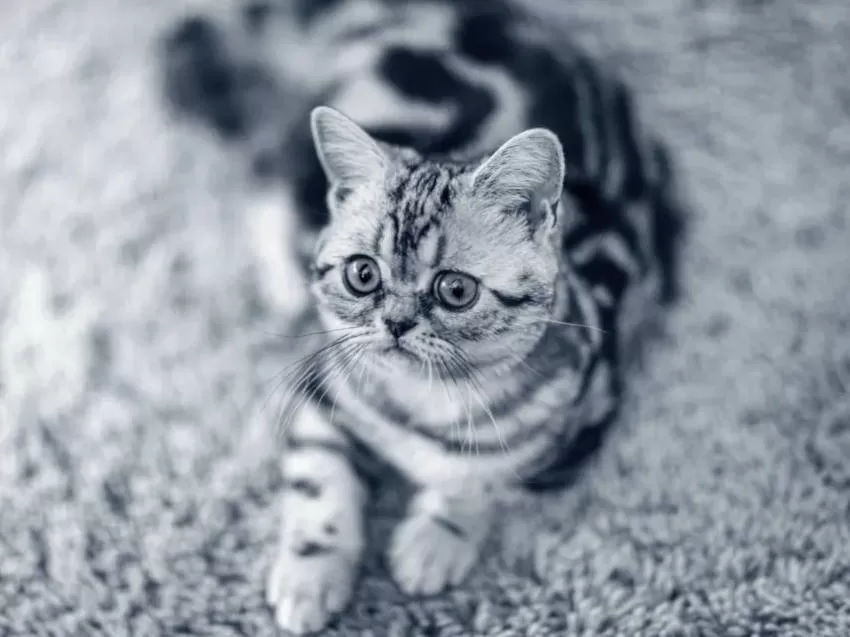
It is essential to emphasize the importance of constantly monitoring the heart rate of cats. This involves being aware of warning signs and seeking immediate veterinary care if any symptoms are of concern. Furthermore, following the veterinarian’s instructions, correctly administering prescribed medications and providing the cat with a balanced diet and adequate exercise are essential care for the feline’s heart health.
In short, a cat’s heart rate is a crucial indicator of their health and well-being. By paying attention to signs of health, carrying out regular exams and adopting the necessary care, owners can ensure that their felines have a full and healthy quality of life.
FAQ
Q: What signs of cat health should I watch for?
A: Bright eyes, clean ears, muzzle free from injuries, healthy skin and coat, normal appetite, adequate weight.
Q: What are the symptoms of heart problems in cats?
A: Lethargy, abnormally high respiratory rate, mouth breathing, shortness of breath, lack of appetite, fainting, fluid accumulation in the belly, paralysis in the hind legs.
Q: Why is it important to take my cat to the vet?
A: Your veterinarian can perform physical exams and diagnose possible heart disease. Additional tests may be performed to confirm the diagnosis.
Q: What special care do cardiac cats need?
A: It is important to follow your veterinarian’s instructions, administer prescribed medications and maintain a healthy lifestyle for your feline.
Q: How does a cat’s heart rate affect their behavior?
A: A faster or slower heart rate can influence the energy, disposition and activity levels of cats.
Q: How is a cat’s heart rate related to their sleep cycle?
A: During sleep, cats’ heart rate can vary, affecting their rest and recovery.
Q: How does the heart rate of kitten cats differ from that of adults?
A: Puppies’ heart rate can vary during their development, and it is important to monitor them during the first months of life.
Q: What about the heart rate of senior cats?
A: The heart rhythm of elderly cats may change, making it necessary to take special care to ensure their heart health as they age.
Q: Does a cat’s diet affect its heart rate?
A: A balanced and adequate diet can contribute to feline heart health.
Q: Does physical exercise influence a cat’s heart rate?
A: Encouraging and practicing physical activities can contribute to the heart health and general well-being of felines.

